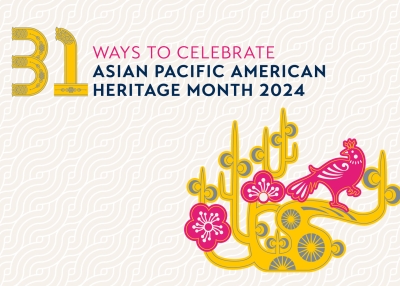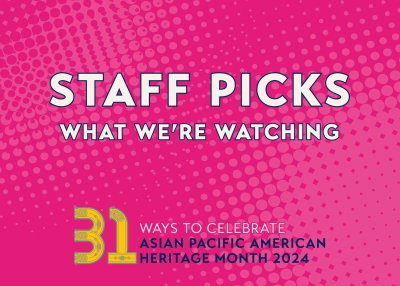AAPI Speakers Highlight Diversity of Experiences, Need for Solidarity in Combating Anti-Asian Hate
Asia Society at Home
Learn More
HOUSTON, May 7, 2021 — In partnership with Asia Society Southern California, Asia Society Texas Center hosted a conversation about standing against racism during the pandemic as its final webcast in the COVID-19: New Realities series. The program coincided with the 139th anniversary of the Chinese Exclusion Act.
Dr. Russell Jeung, Chair and Professor of Asian American Studies at San Francisco State University and co-founder of Stop AAPI Hate; Bee Nguyen, Georgia State Representative for the 89th district; Katrina Ramos, co-founder of the nonprofit Compassion in Oakland; and Amara Walker, CNN anchor and correspondent, spoke with Connie Chung Joe, Chief Executive Officer of Asian Americans Advancing Justice–Los Angeles, about the racism that the Asian American community has faced since the pandemic started last year as well as how to address it. The discussion took place as the frequency of violent acts against Asian Americans has recently escalated.
Putting the violence in context
Walker began the program by describing the lack of awareness about the Asian American experience in general among many Americans, noting that racism against Asian Americans is not merely a recent occurrence but rather is deeply rooted in American history. She explained that because Asian American history is not taught in schools, Asian Americans are made invisible to many members of American society, leaving them vulnerable to hate.
With that context in place, Dr. Jeung described the rise of discrimination and harassment against the Asian American community currently garnering headlines. According to Dr. Jeung, since March 2020 through March 2021, 6,600 incidents of hate have been reported nationwide to Stop AAPI Hate, while a recent Pew survey found that 45 percent of Asian Americans reported experiencing direct racism last year. He added that Asian Americans have also experienced higher degrees of mental stress as a result of ongoing racism as well as economic losses as their businesses have had to shut down, or faced discrimination.
Nguyen expressed the importance of representation for the Asian American community in government, in media, and other places in society. She described the immense sense of responsibility she herself felt to represent and reflect the history of the Asian American community as one of few elected officials of Asian descent in the Georgia General Assembly. She recounted the emotional experience she had when attending a meeting with U.S. President Joe Biden and Vice President Kamala Harris to address violence against Asian Americans, highlighting that racism against Asian Americans is not just something that is seen on the news but also very personal for many people.
What can be done in the short term and long term
When asked what can be done to address the increasing anti-Asian racism, Ramos shared the story around Compassion in Oakland, which she co-founded in February 2021 to combat the escalating violence against Asian Americans in the area. Ramos described how Compassion in Oakland chaperones, which has seen over 2,000 volunteer applicants of all different backgrounds and ethnicities, serves as escorts for members of the community who feel that they would be in danger by walking alone. She pointed to the need for creating more community-based initiatives.
In addition to community organizations like Compassion in Oakland that try to prevent or reduce violence against Asian Americans, Dr. Jeung said more long-term solutions are also necessary to address the roots of racism and not merely “Band-aid solutions.” He emphasized the need to educate communities — young people in particular — through ethnic studies to create racial empathy for Asian Americans; to expand civil rights protections to Asian Americans; and to create restorative justice models for perpetrators of violence so that they learn to be more empathetic. Nguyen agreed on the need for more education on the history of Asian Americans, and added that more light needs to be shed on the different immigration experiences of the Asian American community.
Walker said there is a role for media as well, and that the community needs to pressure the media more to cover Asian Americans, including more positive stories so that Asian Americans are humanized and made visible. Nguyen added that misinformation also plays a significant role in harming the Asian American community, citing a need to combat conspiracy theories that get circulated in Asian languages. To this point, Walker underlined that society as a whole must work to prevent misinformation by using social media responsibly.
Help Us Build a More Inclusive World
The need for solidarity
Ultimately, the sentiment regarding anti-Asian hate is best summarized with Walker's simple statement: “I am a journalist, but I’m also Korean American, I’m Asian American, I’m American, and I’m human.”
Each of the speakers highlighted the need for coalition work and solidarity to combat the twin rise in local violence as well as racist rhetoric.
“All of us want safe streets, all of us want to protect our elders, all of us want equal opportunities and educational opportunities,” said Dr. Jeung. “We need each other to work together to address racism and to fight for justice.”
Additional Resources
More from Asia Society
- Asia Society resources on race and racism: https://asiasociety.org/OnRacism
- Asia Society Texas Center's earlier program with Dr. Russell Jeung on anti-Asian racism
- Asia Society Texas Center's earlier program on the need for disaggregated data and targeted policies for AAPI
Data and How to Get Involved
- Free, virtual Bystander Intervention Training sessions: https://houstonagainsthate.org/BIT/
- Stop AAPI Hate's report released on May 6, 2021
- Pew Research Center study released in April 2021
Business and Policy programs are endowed by Huffington Foundation. We give special thanks to Bank of America, Muffet Blake, Anne and Albert Chao, ConocoPhillips, ExxonMobil, Nancy Pollok Guinee, and United Airlines, Presenting Sponsors of Business and Policy programs; Nancy C. Allen, Chinhui Juhn and Eddie Allen, and Leslie and Brad Bucher, Presenting Sponsors of Exhibitions; Dr. Ellen R. Gritz and Milton D. Rosenau, Presenting Sponsors of Performing Arts and Culture; Wells Fargo, Presenting Sponsor of Education & Outreach; and Mitsubishi Corporation (Americas), Presenting Sponsor of the Japan Series. General support of programs and exhibitions is provided by The Brown Foundation, Inc., The Hearst Foundation, Inc., Houston Endowment, Inc., the City of Houston through Houston Arts Alliance, McKinsey & Company, Inc., National Endowment for the Arts, Texas Commission on the Arts, Vinson & Elkins LLP, and Mary Lawrence Porter, as well as Friends of Asia Society.
About Asia Society at Home
We are dedicated to continuing our mission of building cross-cultural understanding and uplifting human connectivity. Using digital tools, we bring you content for all ages and conversations that matter, in order to spark curiosity about Asia and to foster empathy.
About Asia Society Texas Center
With 13 locations throughout the world, Asia Society is the leading educational organization promoting mutual understanding and strengthening partnerships among the peoples, leaders, and institutions of Asia and West. Asia Society Texas Center executes the global mission with a local focus, enriching and engaging the vast diversity of Houston through innovative, relevant programs in arts and culture, business and policy, education, and community outreach.




